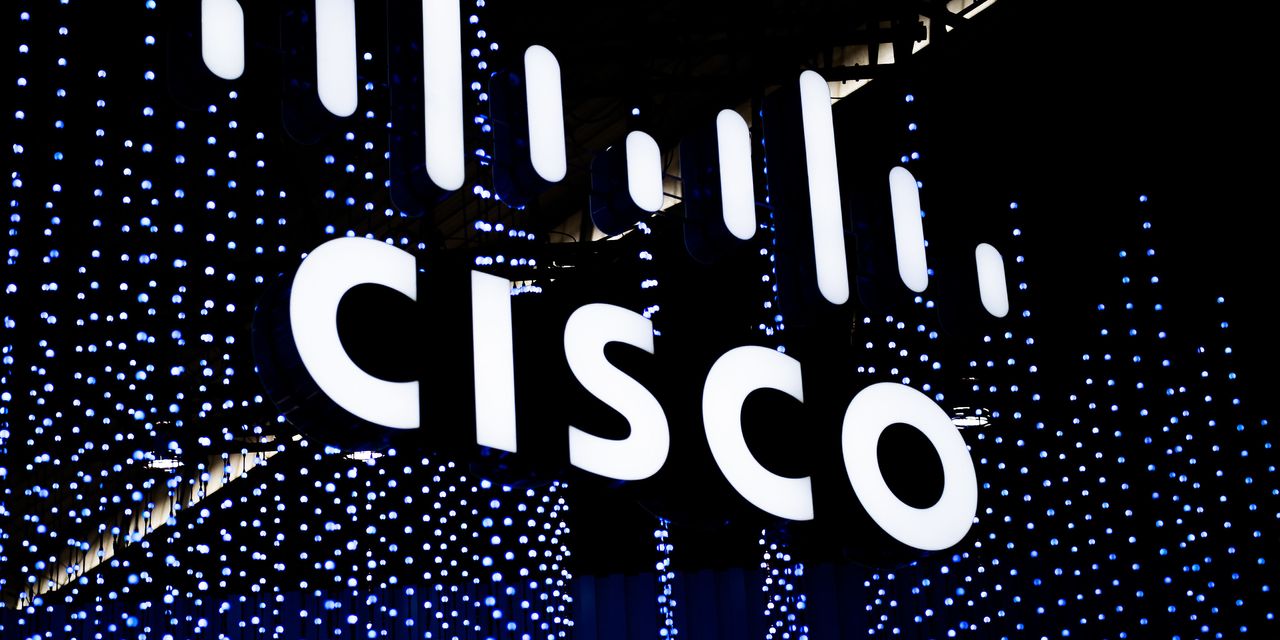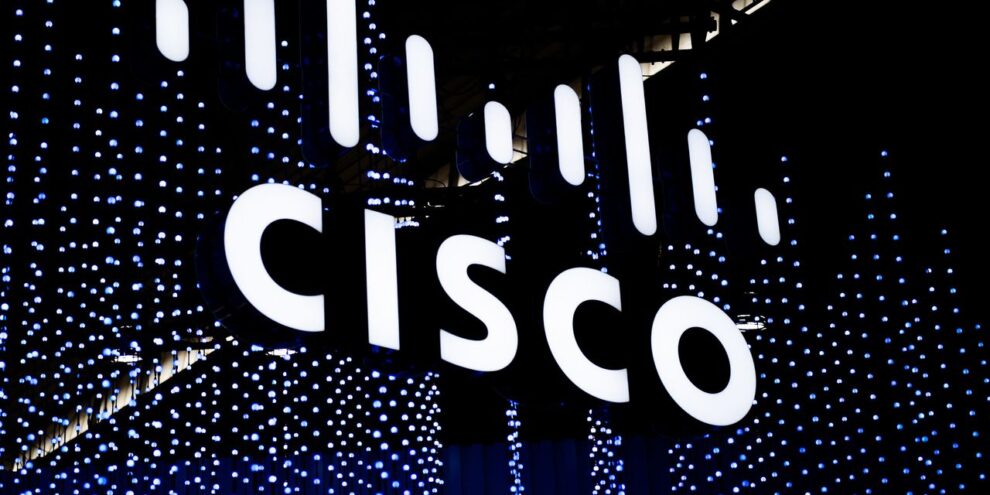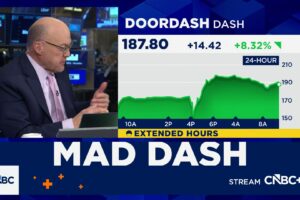
Cisco Systems Inc. shares logged their worst day in more than a decade Thursday, as analysts voiced concerns that China’s COVID shutdown compounded supply-chain problems for the tech giant that smaller rivals managed to mitigate.
Cisco CSCO, -13.73% shares closed down 13.7% at $41.72 for their worst single-day percentage decline since Feb. 10, 2011, when shares dropped 14.2% on Wall Street concerns about higher competition and lower margins at the company. The last time Cisco stock closed at its current level was Nov. 23, 2020, when shares finished at $41.64, according to FactSet data.
The tech bellwether’s top executives blamed supply constraints caused by COVID-related shutdowns in China for the company’s disappointing outlook Wednesday afternoon. Analysts were skeptical about those claims Thursday, however, while pointing out that Cisco’s size could be working against the company.
Read: Opinion: Cisco blames China lockdowns for its forecast cut, but there could be deeper problems
“Yes, supply-chain issues are impacting many companies, but it appears Cisco has been impacted more than others,” Citi Research analyst Jim Suva wrote. “We believe this is due to the fact that Cisco has many more products than peers, which in times of adequate supply is a benefit to customers, but right now such complexity is a negative.”
In its call with analysts, Cisco noted it had about 350 “potential supply concerns” out of 41,000 unique components.
“The shortages range from semiconductors to power supplies to discrete capacitors and resistors as well as basic logistics of moving product around China and other areas has becoming more challenging given COVID protocols,” Suva said. “We note other companies have diversified their supplier base better than Cisco and this is now revealing such differences.”
Full earnings coverage: ‘We did not have a plan for a country to shut down’ — Cisco stock plunges as China lockdown affects supply and outlook
As an example, Suva noted cloud-software and data-center supplier Arista Networks Inc. ANET, -1.43%, which earlier in the month reported results that beat Wall Street estimates, and forecast the current quarter could produce $1 billion in revenue for the first time, which would represent a 40% increase from a year ago.
Arista shares closed down 1.4% Thursday, while the S&P 500 index SPX, -0.58% finished down 0.6%.
Suva is the only analyst to rate Cisco a “sell,” among 29 analysts tracking the company, according to FactSet. He played up that distinction in his note Thursday, while cutting his price target to $40 from $45; at least 14 other analysts also reduced their targets on the stock in response to Wednesday’s earnings report.
JMP Securities Erik Suppiger, who has a market perform rating, said he believes “Cisco is struggling to defend its market share against Arista in both the data center and campus switching markets,” based on his research.
“While Cisco appears to be making inroads into the hyperscaler data-center market, we don’t believe Cisco is displacing Arista, whereas our checks suggest Arista is displacing Cisco in enterprise accounts,” Suppiger said.
Concerning how supply-chain problems are hurting Cisco’s outlook, UBS analyst David Vogt said “the magnitude of the impact and the likely duration is concerning as peers have been more constructive.” Vogt has a neutral rating and cut his price target to $46 from $59.
“Given the magnitude of the shortfall, we expect material headwinds to persist over the next 2-4 qtrs,” Vogt said.
See also: Wells Fargo shakes up networking views, suggests Arista
Morgan Stanley analyst Meta Marshall, who has an equal-weight rating and cut her price target to $46 from $59, questioned whether Cisco’s report was the “storm before the calm or calm before the storm.”
“We noted that enterprises were starting to make smaller purchases given inflationary costs / rising financing costs (versus just taking a second look at capex spend),” Marshall said. “However, what kept us from going [to downgrade to underweight] was level of backlog Cisco had and flexibility on opex to achieve meaningful earnings growth (and a valuation already in-line with 10-year average).”
Marshall was referring to Cisco citing it had a more than $15 billion backlog as “100% supply” issues kept it from fulfilling customer demand.
J.P. Morgan analyst Samik Chatterjee, who has an overweight rating and cut his price target to $62 from $67, said Cisco’s report late Wednesday “will leave investors with more questions than answers relative to demand sustainability, while increasing concerns around supply challenges.”
Chatterjee said he’s “more inclined to ask investors to look beyond the challenging metrics over a 90-day period, which faced the confluence of supply headwinds as well as revenue/order headwinds on account of Russia exit and tough comparables from a year ago, which also was a quarter with an extra week.”
The J.P. Morgan analyst cited that order trends were still up double-digit percentages when adjusting for Russia and the extra week, and that small-to-medium business growth was at 19%, which he said is a clearer indicator of macro demand that the low-single digit growth of Cisco’s wider enterprise segment.
Over the past 12 months, Cisco shares are down 20.5%, compared with a 7.8% drop in the Dow Jones Industrial Average DJIA, -0.75%, of which Cisco is a component, a 5.2% fall by the S&P 500, and a 14.4% drop in the tech-heavy Nasdaq Composite Index COMP, -0.26%. Meanwhile, Arista shares are up 25% from 12 months ago.
Of the 29 analysts who cover Cisco, 14 have buy-grade ratings, 14 have hold ratings, with Suva as the only analyst with a sell rating. After the price-target reductions Thursday, the average target price was $53.09, down from a previous $62.85, according to FactSet data.











